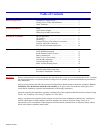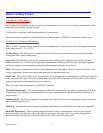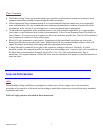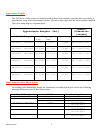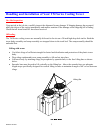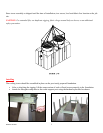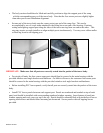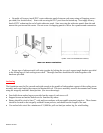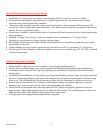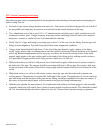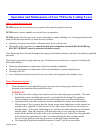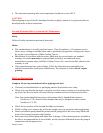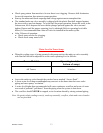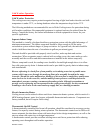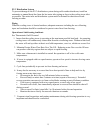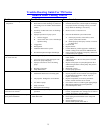
Revised 1-8-2007
9
Electrical Wiring of Fan Motor and Accessories
• Installation of a vibration cut-out switch is recommended. (Refer to tower accessories available).
• All electrical work should be performed only by qualified personnel and in accordance to prevailing
electrical codes, practices and safety standards.
• The motor starter should be sized on voltage, nominal horsepower, and maximum full load current. This
current value can be found on the motor nameplate. If the starter cannot accept the maximum full load motor
current, the next size should be used.
• Motor heaters should be selected on the basics of maximum full load current and service factors based on the
motor nameplate.
• Standard “Cooling Tower Service” motors are supplied with a minimum of a 1.15 Service Factor.
• Optional two speed motors are single winding variable torque.
• Run flexible conduit with some slack from the motor conduit box to terminal box outside the tower where
rigid conduit can be used.
• Conduit holding clip screws can be tapped directly into the tower wall. Use maximum 3/8” long screws.
• For the typical wiring schematic of fan motor and tower accessories, see Delta dwg. DT –B-78-001, included
with these instructions.
Location, Piping and Connections
• Piping should be adequately sized in accordance with accepted standard practices.
• Gravity drain to indoor storage sump requires proper head differential and piping design considerations.
Allowance must be made for flow, pipe size, piping layout and distance of cooling tower from the indoor
storage sump.
• On multiple cell installations, valving and/or pipe sizing should balance pressure drops to provide equal inlet
pressures. Equalizing fittings are provided in the sumps of each cell and can piped together to balance sump
water level. Each cell should be valved separately to allow for flow balancing or isolation from service.
• Prior to start-up check that the PVC locknuts on all bulkhead fittings are properly tightened to prevent
nuisance leaks. A chain wrench can be used to check and tighten the locknuts.
• Check that the SS hexagonal nuts on the inlet and outlet PVC flanges are properly tightened to prevent
nuisance leaks. While tightening the nuts, do not allow the bolt to rotate. This could damage the rubber seal
under the flat washer on the bolt head located inside the cooling tower.
• All supply and return piping must be independently supported.



